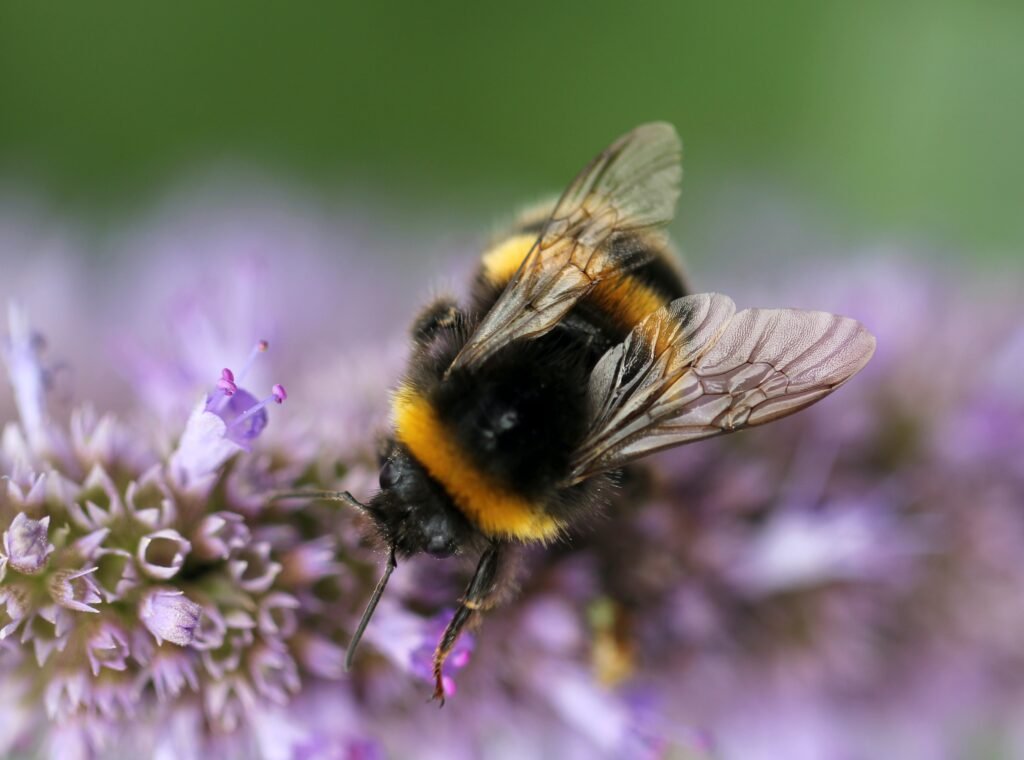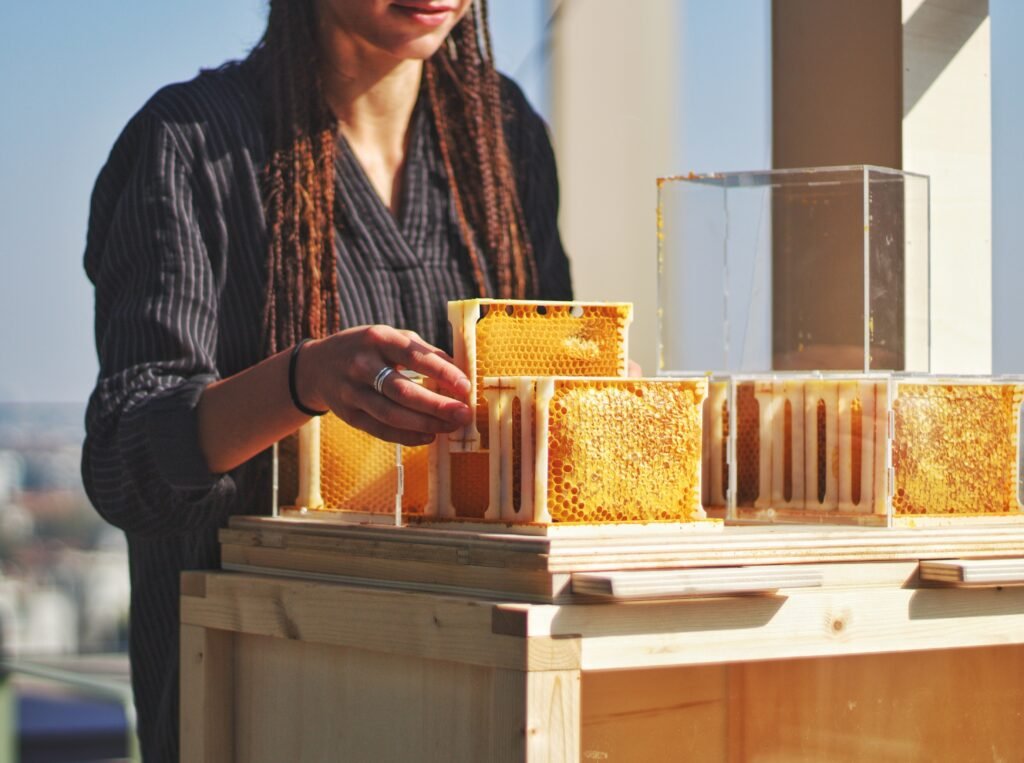Us city-dwellers can often feel at a loss of how we can contribute to a more sustainable future. As our modern infrastructure is so inherently pollutive, it can feel like a radical change is needed, far beyond our individual reach. The truth is, there are many small steps we can take to contribute to a greener city. Today we’re going to put the spotlight on one of these – urban beekeeping!
In recent years, the trend of urban agriculture has taken off in a big way, with community gardens, rooftop forests and urban hen coops bringing communities together, and closer to nature. And beekeeping is no exception! So, what’s all the buzz about?
Bees feed us!
Well, bees are an essential part of our ecosystem. They help maintain a healthy level of biodiversity, and they are the starting point in fulfilling many of our basic human needs. Without bees to pollinate our flowers, crops and trees, we wouldn’t have a sustainable food source to keep us healthy and thriving.

Bees need our help
What’s more, the bee population has been in decline for years. With modern agriculture tending toward monoculture farming, bees in rural areas are exposed to less diverse types of plants and more chemicals. Exposure to the popular agrichemicals known as neonicotinoid pesticides is killing bees. What’s worse is that these chemicals target queen bees in particular, lowering the colony’s ability to reproduce.
Colony Collapse Disorder (CCD) is an abnormal phenomenon that occurs when the majority of worker bees in a honey bee colony completely disappear, leaving behind a queen and some food. The phenomenon is so bizarre because the bees actually seem to disappear into thin air – no dead bee bodies are found! CCD has been causing havoc in bees and beekeepers’ lives for years, affecting not only the hive’s health, but bigger issues like the agricultural economy. Because of the decline in bee population, the prices of over 130 different fruits and vegetables which we rely on are going up. As the causes of CCD occurring are very unclear, many people feel helpless seeing the bee population reduce.
City bees = stronger bees!
But urban beekeeping is the perfect way to counter these problems. Apiaries located in cities actually produce healthier bees. Cities have a much more elaborate selection of flowers and trees available, creating a more diverse network of food sources to breed healthy hives, and a greater honey yield. An urban hive will produce an average of 26.25 pounds of honey in its first year, with a rural hive producing only 16.75. What’s more – this honey will taste like the flowers in your city! With exposure to this greater biodiversity, urban bees also develop stronger immune systems. They are not exposed to harsh chemicals like neonicotinoid pesticides, and instances of CCD are rarer among urban bee colonies.
Bees = $ for your community!
Urban beekeeping promotes sustainability by increasing the health and number of different plants in your city. It can also have economic benefits for your local community. With more produce and crops being cultivated locally, you will save on the cost of transportation, leading to cheaper end products. Urban apiaries are actually a much-overlooked financial asset, that may lead to economic opportunity in the future. As we continue to see bee populations declining, the need for a new source of pollen for agricultural crop production grows. Farmers may turn to urban beekeepers to rent out their bees and fill this need. In Los Angeles, for example, the fallout from bee population decline was so bad that, in 2014, they changed the law, allowing urban beekeeping to reinvigorate local bee populations.
Bees Create Community
Across the world, many nonprofits have recognized the value of beekeeping not only for sustainability, but also for bringing communities together. In Vancouver, Hives for Humanity offers courses and workshops to get visitors started on their beekeeping journey. Sessions focused on team building and fostering connections bring a whole new dimension to beekeeping, offering a therapeutic capacity that comes with being outdoors and connecting with nature – and with one another. They also support at-risk communities in the city by providing access to seeds, and offering mentorship programs to build skills and nurture self-worth.
Bees Abroad, a nonprofit registered in the UK, works with partners to deliver locally appropriate beekeeping equipment, training and mentorship in 10 countries across Africa and in India. Their goal is to enable participants to generate income and improve their quality of life through sustainable means. Honey is a relatively high-priced commodity due not only to its use as a sweetener but also its many health properties. In this way, it is a fantastic source of income for these communities and also a resource for their collective health and wellbeing.

There are projects like these happening all over the world. Have a search today for what beekeeping collectives are active in your local area – we bet you’ll be surprised at how many there are! Don’t delay, join the buzz today!
Contact Us!
Here2Help is a community tech organization focused on innovative solutions to ensure the growth of resilient communities generations into the future. Are you a community-minded individual interested in sharing your skills to help empower your community? We would love to hear from you to collaborate! Contact us if you’re interested in working with us or hosting a workshop on the Here2Help platform.
We are a registered not-for-profit run entirely through volunteer support. Any contribution goes a long way in helping us reach our goal of healing communities from within. Visit our Donate page to learn more about how your contribution can make a real difference.
Did you enjoy this article? Share it on social media to help us make a collective impact!
